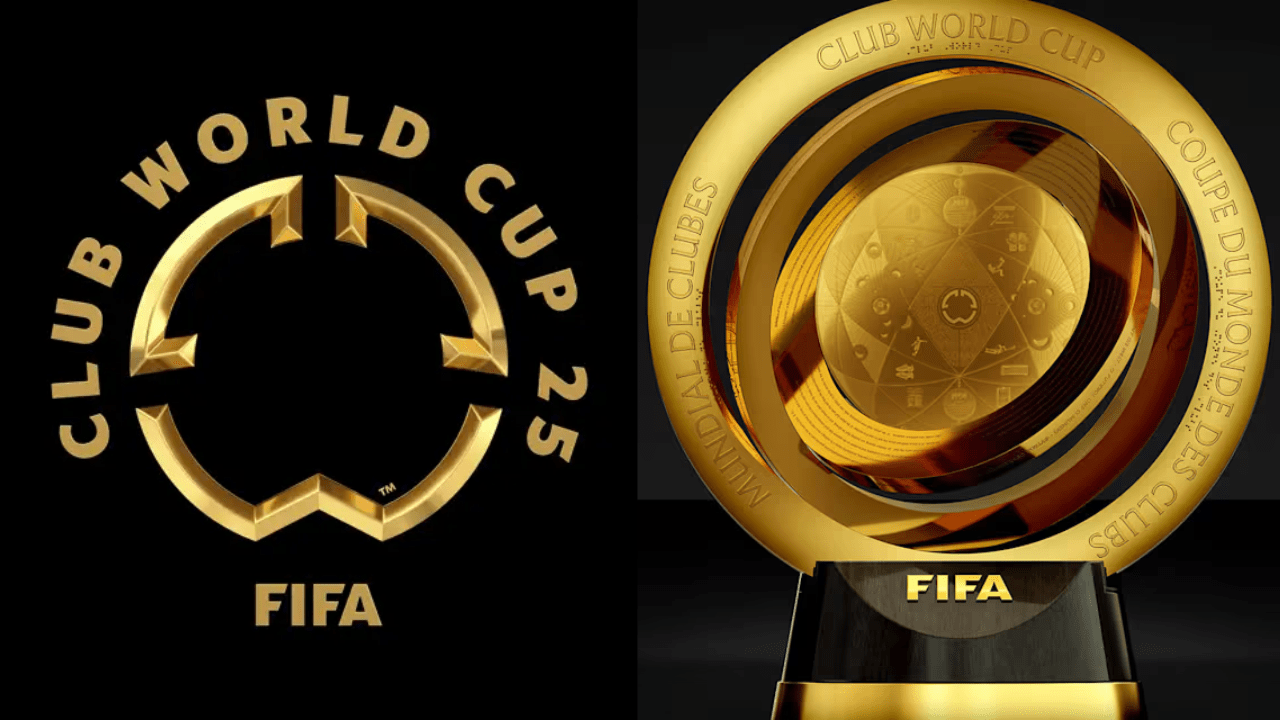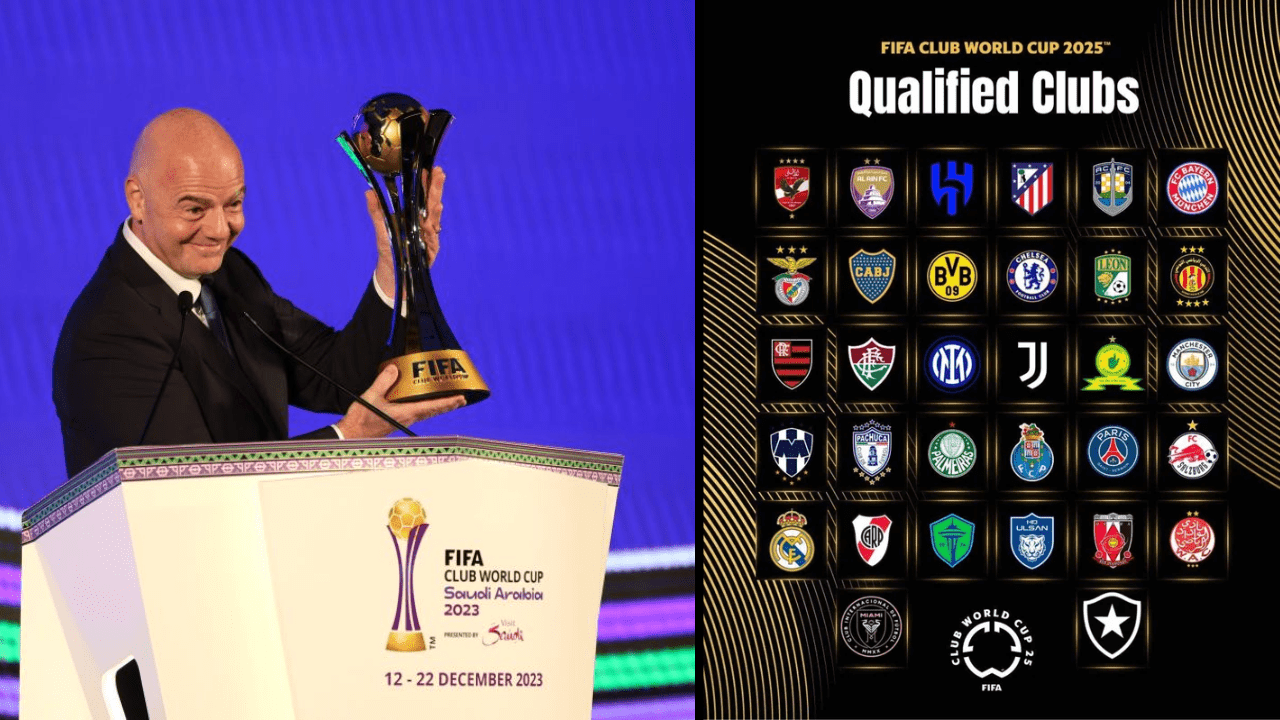Discover the history, significance, and key highlights of the FIFA Club World Cup 2025. Learn how this prestigious tournament shapes global football and what to expect from its upcoming edition!

Football, often described as “the beautiful game,” has transcended the boundaries of sport to become a global phenomenon. While tournaments like the FIFA World Cup bring together nations to compete on the grandest stage, the FIFA Club World Cup offers a unique platform where club teams from across the globe battle it out for ultimate supremacy. With the 2025 edition of the FIFA Club World Cup set to introduce transformative changes, it’s the perfect moment to explore the tournament’s origins, its evolving significance, and what fans can expect in the future.
The Origins and History of FIFA Club World Cup
Before the advent of the FIFA Club World Cup, the Intercontinental Cup served as the closest equivalent to a global club competition. This tournament pitted the winners of the UEFA Champions League against the Copa Libertadores champions, providing a thrilling spectacle but excluding clubs from other continents.
Recognizing the need for a more inclusive event, FIFA launched the inaugural FIFA Club World Cup in 2000. Hosted in Brazil, this tournament welcomed champions from all six FIFA confederations, along with a representative from the host nation. Corinthians, representing Brazil, emerged as the first champions, defeating Vasco da Gama in a nail-biting final.
Despite its promising start, the competition faced hurdles, including financial instability and scheduling conflicts, leading to a hiatus until 2005. Since its revival, the FIFA Club World Cup has grown steadily, carving a unique niche in the football calendar.
Why the FIFA Club World Cup Matters
Celebrating Global Football
The significance of FIFA Club World Cup stands out as a celebration of football’s global nature. Unlike continental tournaments that focus on specific regions, this competition brings together clubs from Europe, South America, Asia, Africa, North America, and Oceania.
This diversity not only showcases the universality of the sport but also provides a platform for clubs from lesser-known footballing regions to prove their mettle against traditional powerhouses.
Bridging Gaps Between Regions
One of the most exciting aspects of the FIFA Club World Cup is the rare matchups it offers. Fans get to witness a Japanese club taking on a European giant or an African champion challenging a South American powerhouse. These clashes, unthinkable in most other tournaments, provide a unique appeal and foster cross-regional appreciation of the game.
Opportunities for Emerging Clubs
For clubs outside of Europe and South America, the FIFA Club World Cup offers a rare chance to step into the global spotlight. Teams like Al Ahly SC (Egypt), Auckland City FC (New Zealand), and Kashima Antlers (Japan) have used the tournament as a stage to showcase their quality and earn international recognition.

Evolution of the Tournament
Initial Format
The early editions of the FIFA Club World Cup followed a straightforward format, featuring seven teams: six continental champions and the domestic league champion of the host nation. This ensured representation from across the footballing world while maintaining a manageable schedule.
Expansion in 2025
The upcoming 2025 edition marks a significant evolution. FIFA has announced an expansion to 32 teams, introducing a structure similar to the FIFA World Cup for national teams. This change reflects FIFA’s ambition to elevate the tournament’s prestige and enhance its competitive appeal.
The new format includes a group stage followed by knockout rounds, ensuring more matches and greater global representation. While European and South American clubs will still be the favorites, the expanded structure offers more opportunities for surprises and underdog triumphs.
Memorable Moments in FIFA Club World Cup History
Over the years, the FIFA Club World Cup has delivered unforgettable moments that have cemented its place in football folklore.
- Corinthians’ Victory in 2000: The inaugural champions, Corinthians, defeated Vasco da Gama in an all-Brazilian final, marking a historic start to the tournament.
- Chelsea’s Redemption in 2021: After falling short in 2012, Chelsea claimed their first FIFA Club World Cup title by defeating Palmeiras in a thrilling final.
- Al-Ain’s Heroics in 2018: UAE’s Al-Ain stunned the world by defeating River Plate to reach the final, where they ultimately fell to Real Madrid. Their journey exemplified the unpredictability of the tournament.
The Significance of the 2025 Edition
The FIFA Club World Cup 2025 promises to be a watershed moment in the competition’s history. With an expanded format, the tournament aims to become the definitive championship for club football worldwide.
Why the Expansion Matters
- More Teams, More Stories: The inclusion of 32 teams ensures representation from a broader range of footballing cultures and traditions.
- Increased Competition: With group stages and knockout rounds, every match carries higher stakes, guaranteeing excitement from start to finish.
- Global Viewership: The expanded tournament is expected to attract an even larger audience, further solidifying football’s status as the world’s most popular sport.
Challenges and Opportunities
- Scheduling Conflicts
As clubs juggle domestic, continental, and international commitments, fitting the expanded FIFA Club World Cup into an already packed calendar could pose logistical challenges.
- Player Fatigue
With the increased number of games, concerns about player workload and fatigue are likely to arise. Clubs and FIFA must collaborate to ensure player welfare is prioritized.
- Opportunity for Growth
Despite these challenges, the 2025 edition represents a tremendous opportunity to grow the tournament’s profile and foster a deeper connection between fans and clubs from different regions.
Looking Ahead
The FIFA Club World Cup is more than a trophy; it’s a celebration of the game’s ability to unite people across continents. As the 2025 edition approaches, anticipation is building for what promises to be a landmark event in football history.
Whether you’re a fan of European juggernauts like Real Madrid or an admirer of underdog stories like Al-Ain’s, the FIFA Club World Cup offers something for everyone. Its expanded format not only enhances its competitive appeal but also underscores football’s universal language—a language that speaks to millions around the world.
So mark your calendars, football enthusiasts. The FIFA Club World Cup 2025 is set to deliver unforgettable moments and reaffirm why we all love the beautiful game.
Read More

The Psychology of Love: Why Valentines Day Matters More Epic Than You Think
Discover the psychology of love and why Valentines Day is more important than you think. Learn how love impacts the brain, strengthens relationships, and boosts

Premier League Highlights: Arsenal Humiliate Man City 5-1, Spurs and Palace Secure Crucial Wins
Arsenal demolished Manchester City 5-1 in a statement premier league highlights win, reigniting their title hopes. Meanwhile, Crystal Palace stunned Man United 2-0, and Tottenham

How Budget 2025 Impacts the Indian Middle-Class: Major Tax Benefits and Glaring Omissions
Budget 2025 offers major tax relief to the middle class, including zero tax on incomes up to ₹12 lakh. However, it misses out on incentives

Degrees vs Employability: Why “Highly Qualified Degree Holders” Struggle to Find Jobs While “Less Qualified Individuals” Get Hired Faster!
Many highly qualified individuals struggle to secure jobs, while less qualified candidates get hired quickly. This Degrees vs Employability paradox is caused by employer preferences,

The Power of Mindset: Why Looking Poor Doesn’t Make You Poor, but Thinking Poor Does!
Discover why looking poor doesn’t define your wealth but thinking poor does. Learn the power of mindset and how a growth-oriented mindset can lead to

Overthinking: How It’s Damaging Today’s Youth – Causes and Cure in 2025
Understanding how overthinking is silently damaging today’s youth, from its causes rooted in societal pressure and social media to its long-term effects on mental health.
